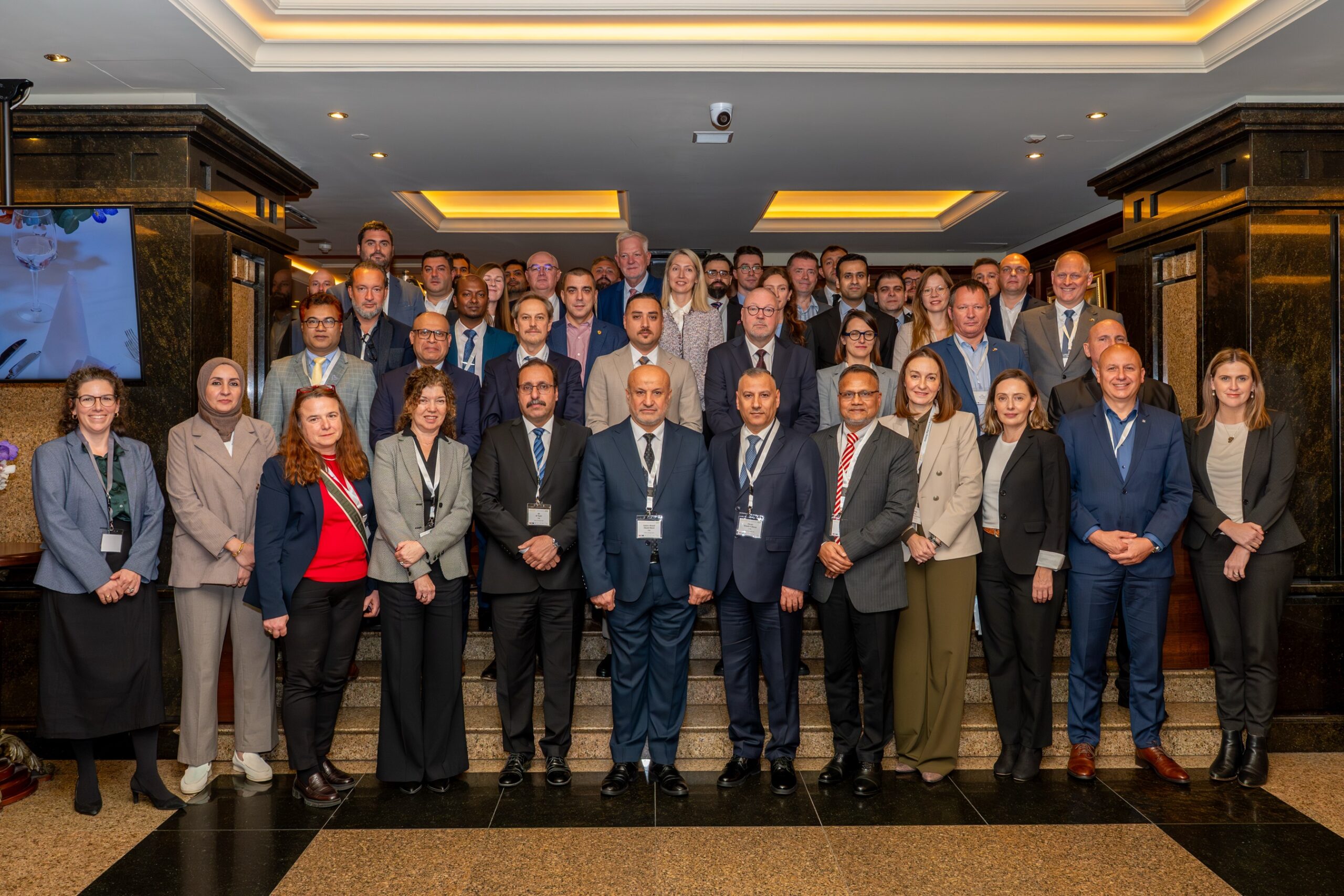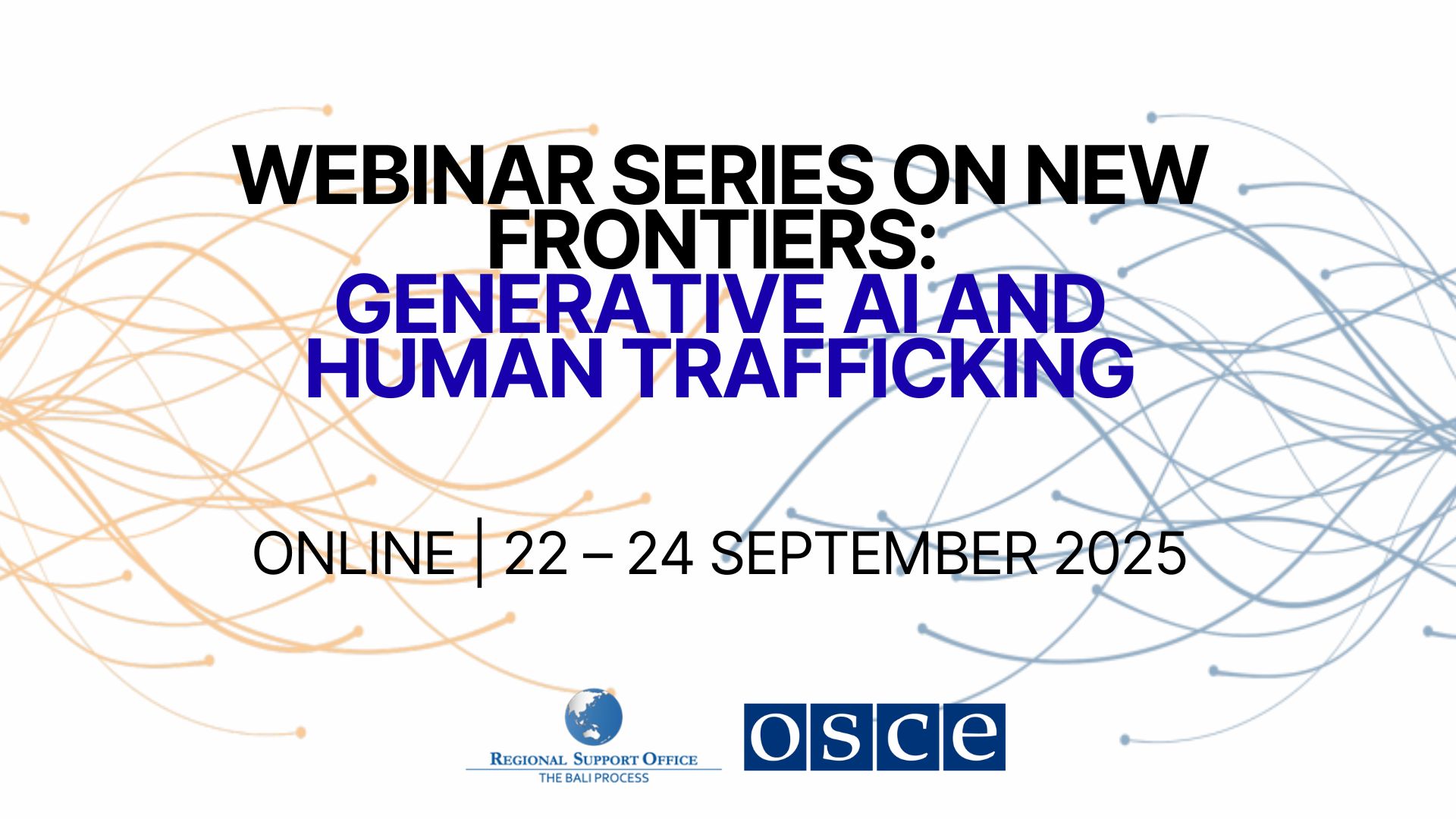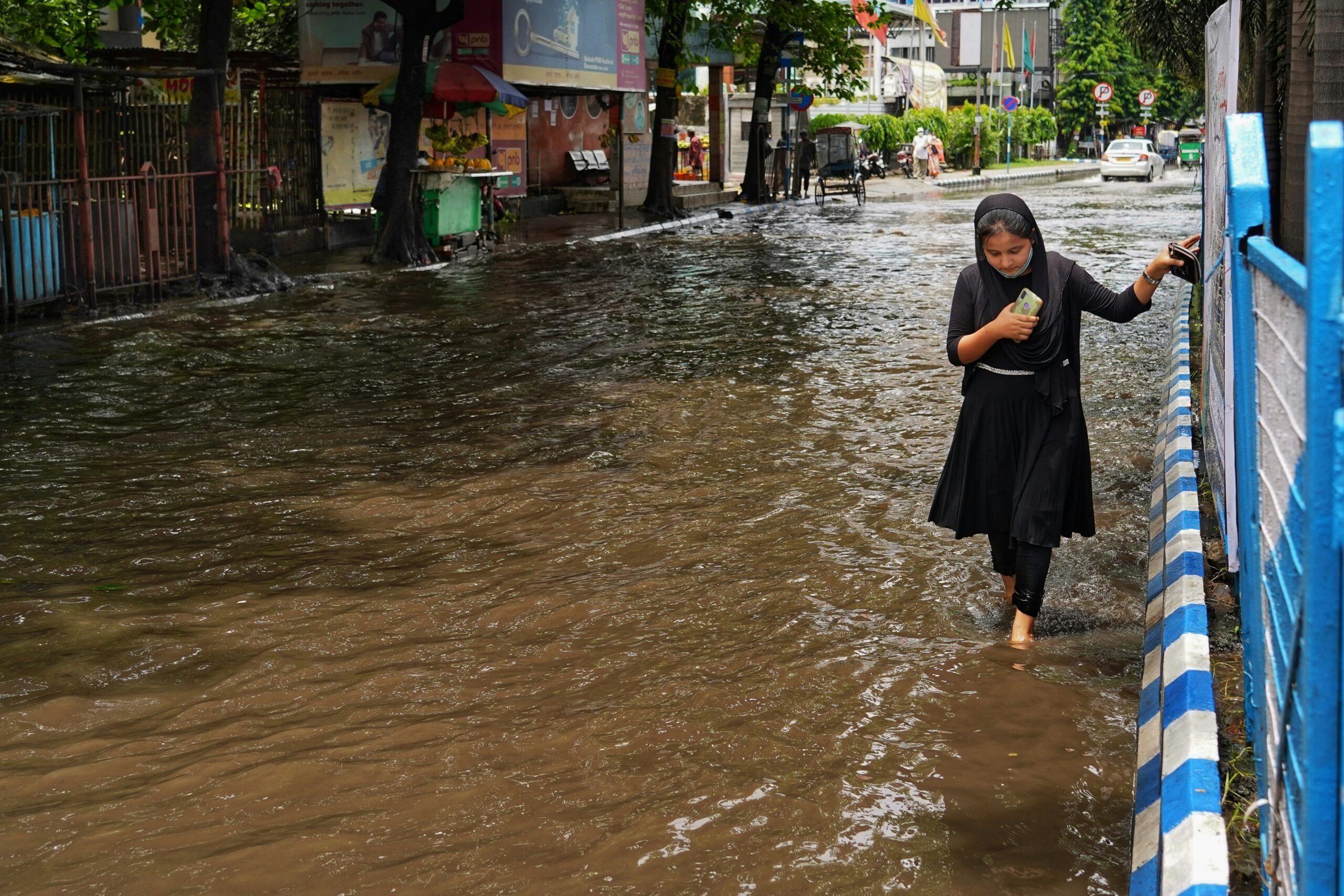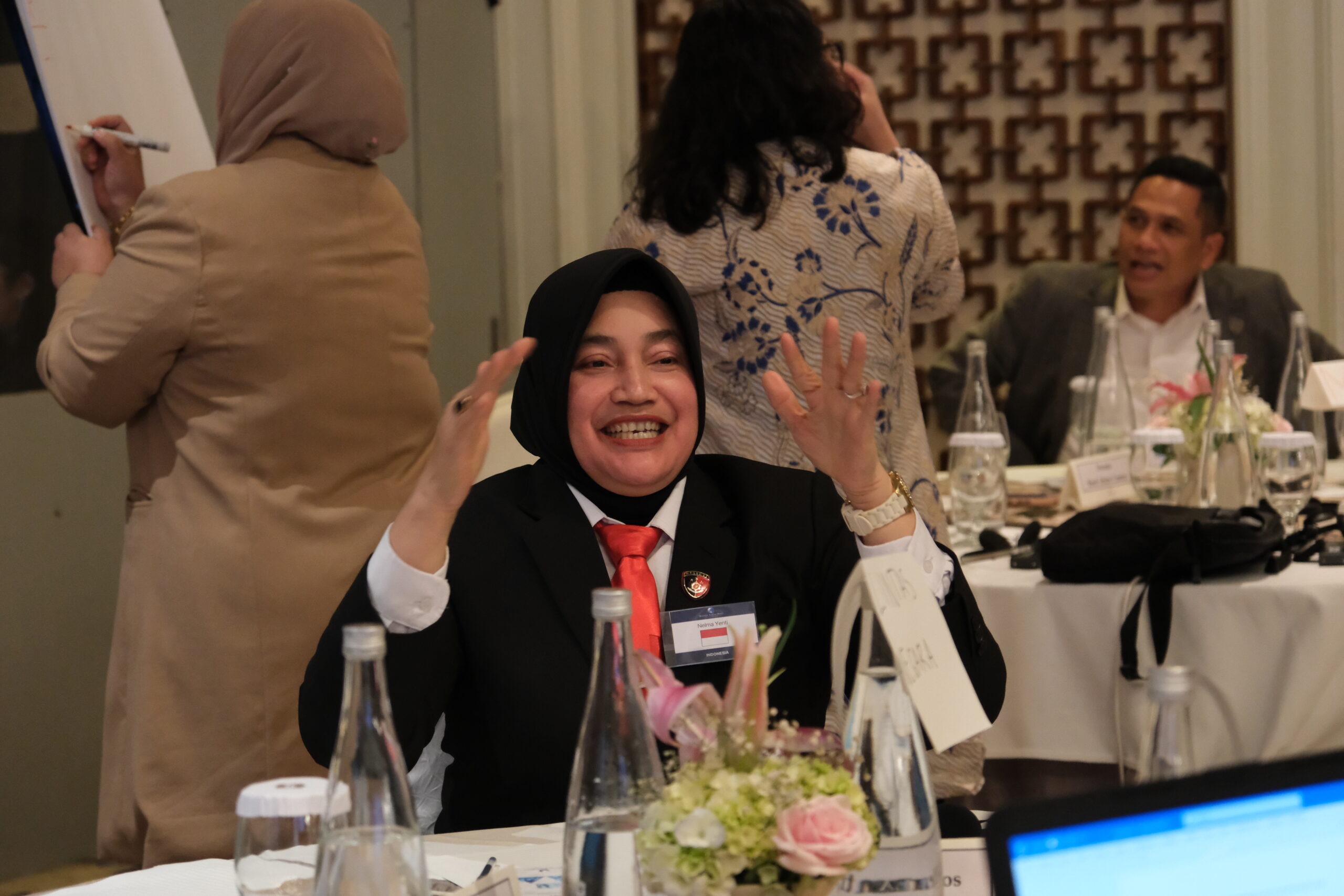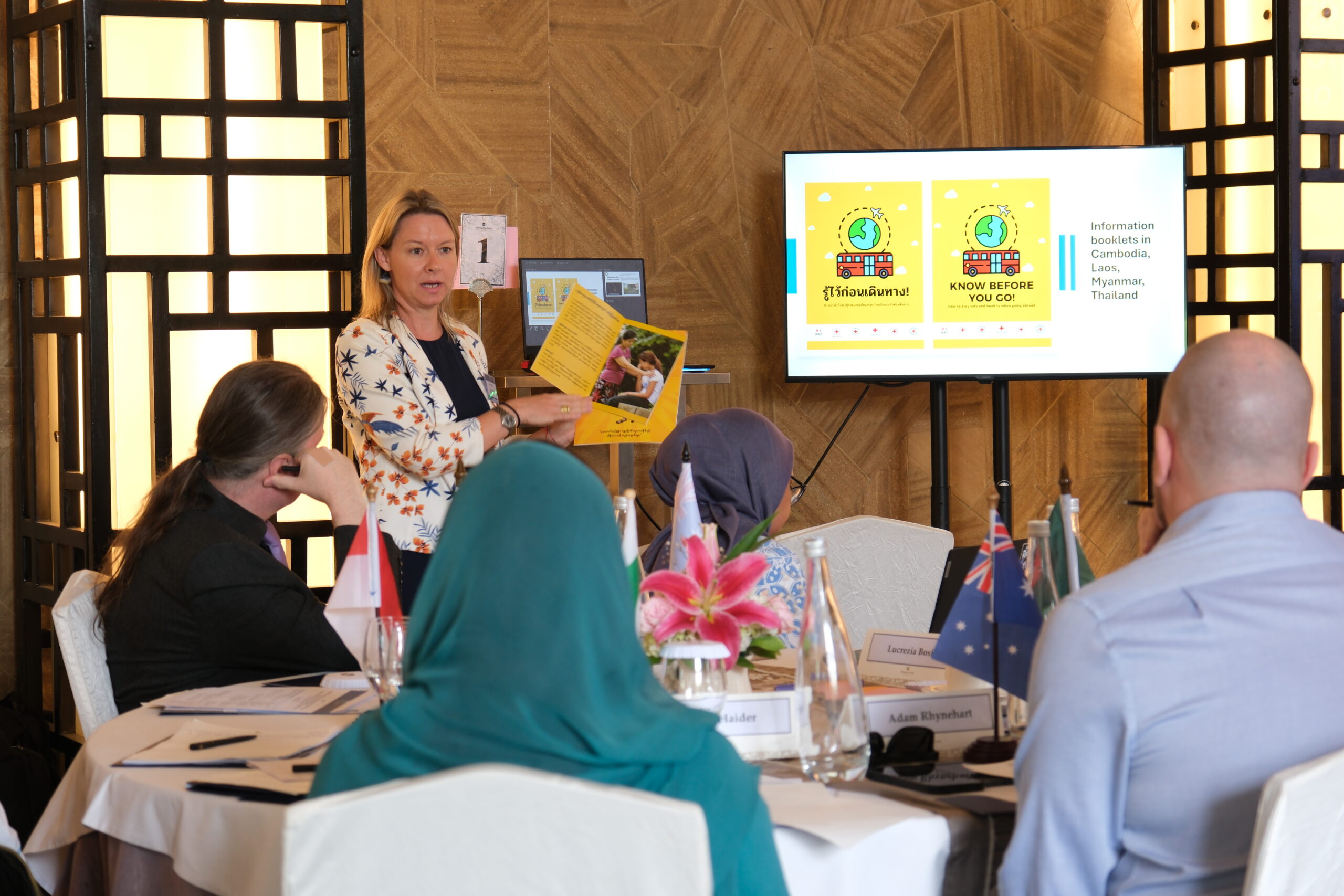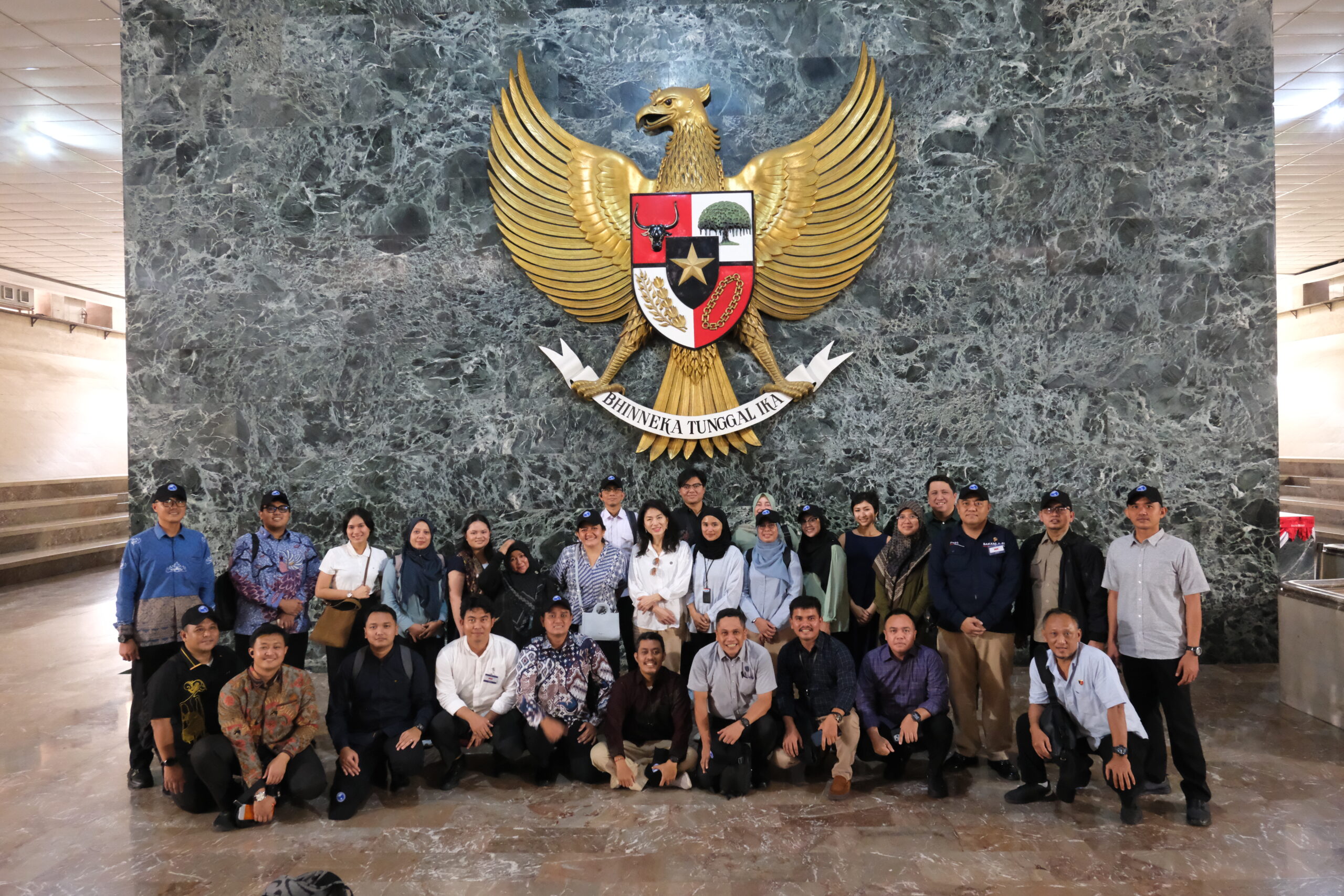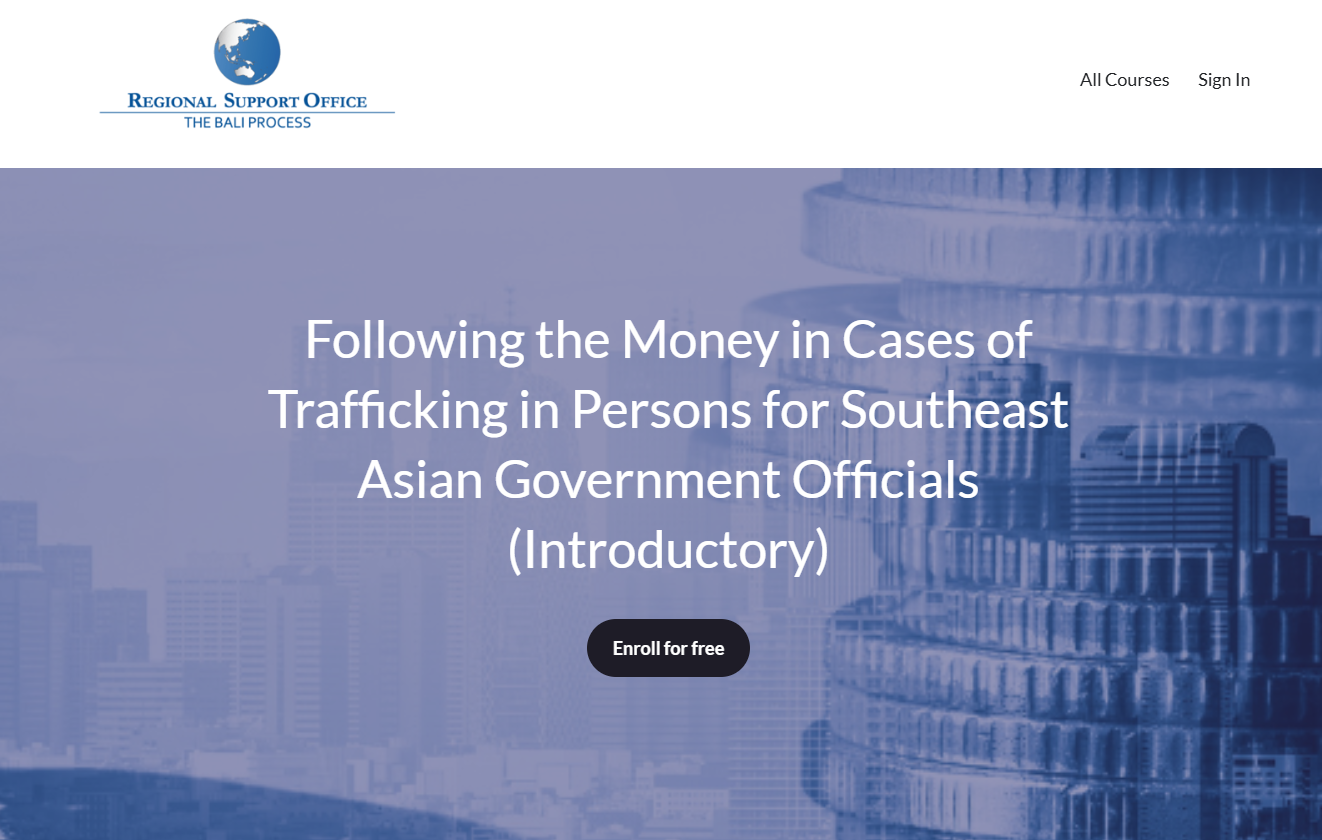6-7 October 2025 • Sofia, Bulgaria
Transnational organised crime, people smuggling, and trafficking in persons—the operations of which have leapt in scale and reach over recent years, enabled by emerging technologies—has resulted in cross-border threats that go far beyond the capacity of single agencies. Coordinated regional responses are critical, and operational law-enforcement cooperation, timely intelligence-sharing and targeted capacity development are a recurring priority across regional mechanisms and initiatives.
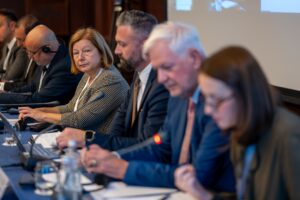
Philipoff Events PLTD
As part of its ongoing commitment to information sharing, and support for regional and inter-regional responses, the Regional Support Office of the Bali Process (RSO) participated in the Budapest Process Thematic Working Group Meeting on Law Enforcement Cooperation.
Co-chaired by the Governments of Bulgaria and Iraq, the Working Group Meeting brought together more than 60 senior officials, practitioners, and experts from 16 countries and 11 international organisations. The meeting focused on ingredients for successful law enforcement cooperation including targeted research, needs-based capacity building, and improved data sharing as key priorities for operational cooperation on countering people smuggling and trafficking in persons.
Panel discussions focused on the evolution of risk-analysis frameworks and vulnerability-assessment tools aimed at strengthening border operations and improving protection for vulnerable groups. The European Border and Coast Guard Agency (FRONTEX) discussed successful cooperation through coordinated border protection efforts to bolster regional responses. Another panel included border police and immigration training officials from Iraq, Bangladesh, Bulgaria and Czech Republic and focused on embedding training within national institutions to support lasting sustainability and ownership of capacity development that is fit for purpose when considering digitalisation and modernisation needs. Bangladesh shared promising developments through the master trainer model, which has increased their capacity.
“Countries are focusing on institutionalised and accredited national programs as the most effective way to leverage capacity development and maximise investments in time and resourcing spent on training, signalling a shift towards national ownership and sustainable capacity building” said Jordyn Francis, RSO Programme Manager for Information Sharing and Regional Responses.
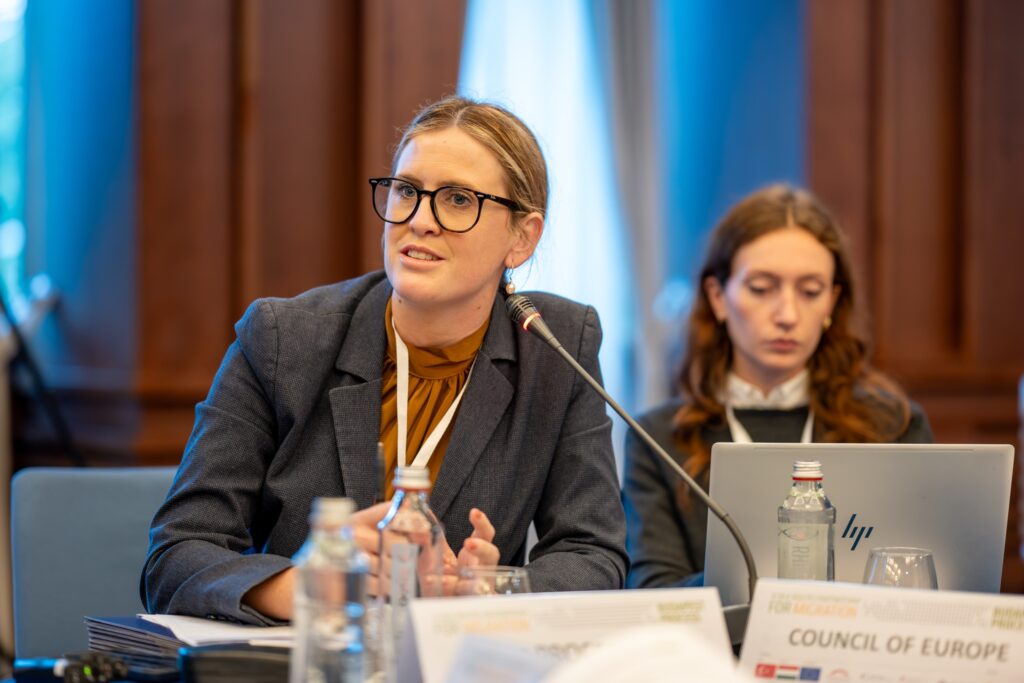
Philipoff Events PLTD
The Thematic Working Group meeting focused on three key pillars for effective law enforcement cooperation: sustainable capacity building through institutionalised training, the development of robust risk-analysis frameworks, and the operationalisation of COLEP (Community of Law Enforcement Practitioners). COLEP, as the operational arm of the Thematic Working Group, is designed to promote exchange of good practices and learning between law enforcement officials and be a catalyst for initiatives that enhance operational cooperation against people smuggling and trafficking in persons.
Attendees of the Thematic Working Group outlined priorities for COLEP’s next phase, which included targeted research, needs-based capacity-development, and development of data sharing and concluded with a commitment to turn dialogue into operational practice.
Similarly, the RSO plays an active role in strengthening information sharing and regional responses among Bali Process Members through the Regional Information, Liaison and Outreach Network (RILON) Initiative. Ongoing work under the RILON framework includes cross-border cooperation and information sharing around key priority challenges, facilitating capacity building for front-line officers, coordinating secondment opportunities with the RSO, and promoting regional cooperation through time-limited RILON Response Groups.
“Our frameworks (COLEP and RILON) share a common vision of improving coordination and strengthening information exchange among frontline line officers from law enforcement, border and immigration and maritime agencies” Jordyn Francis added.
“Strengthening regional responses is the foundation for inter-agency cooperation and reinforces mutual learning and regional resilience to transnational crime. By linking our efforts, we can increase the interoperability between the Silk Routes and Asia-Pacific regions to foster a unified response.”
For the RSO, the discussions reinforced opportunities to align priorities, particularly in strengthening practitioner networking, information flows, and digital reporting mechanisms under the RILON Initiative. Strengthening regional responses is a foundation for inter-agency cooperation and building coherence between the Silk Routes and Asia-Pacific regions can reinforce mutual learning and regional resilience to transnational crime.
The meeting reaffirmed that long-term success in combatting irregular migration requires sustained national ownership of capacity building, rights-based approaches, and coordinated regional strategies. Continued engagement through COLEP and the Budapest Process framework will be vital in sustaining cooperation, expanding networks, and supporting data-driven, human-centred law enforcement strategies across partner countries.
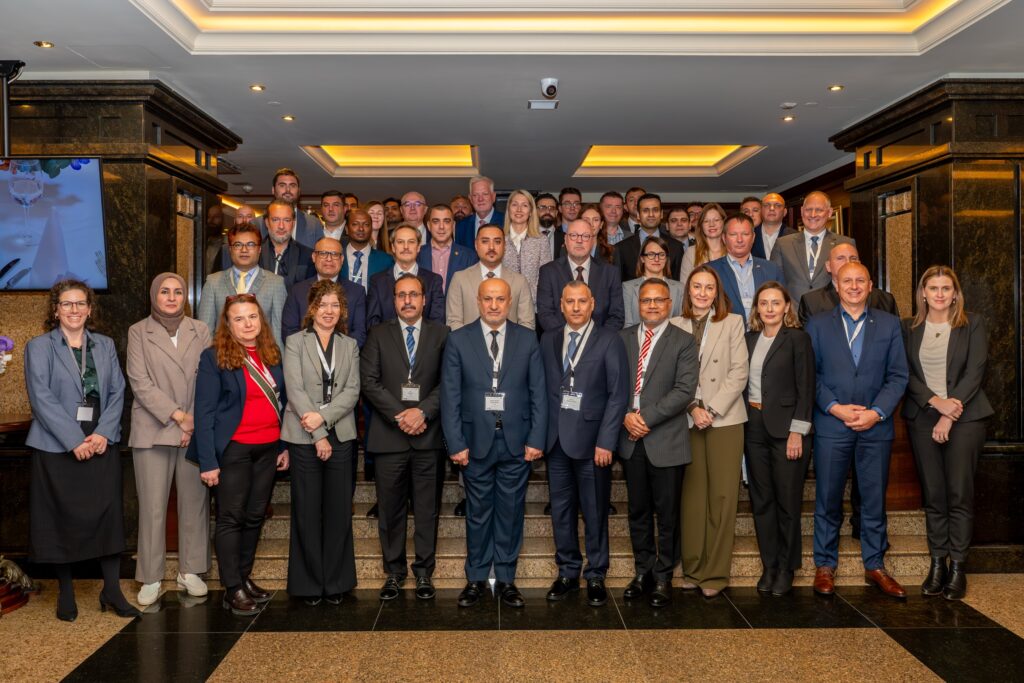
Philipoff Events PLTD


